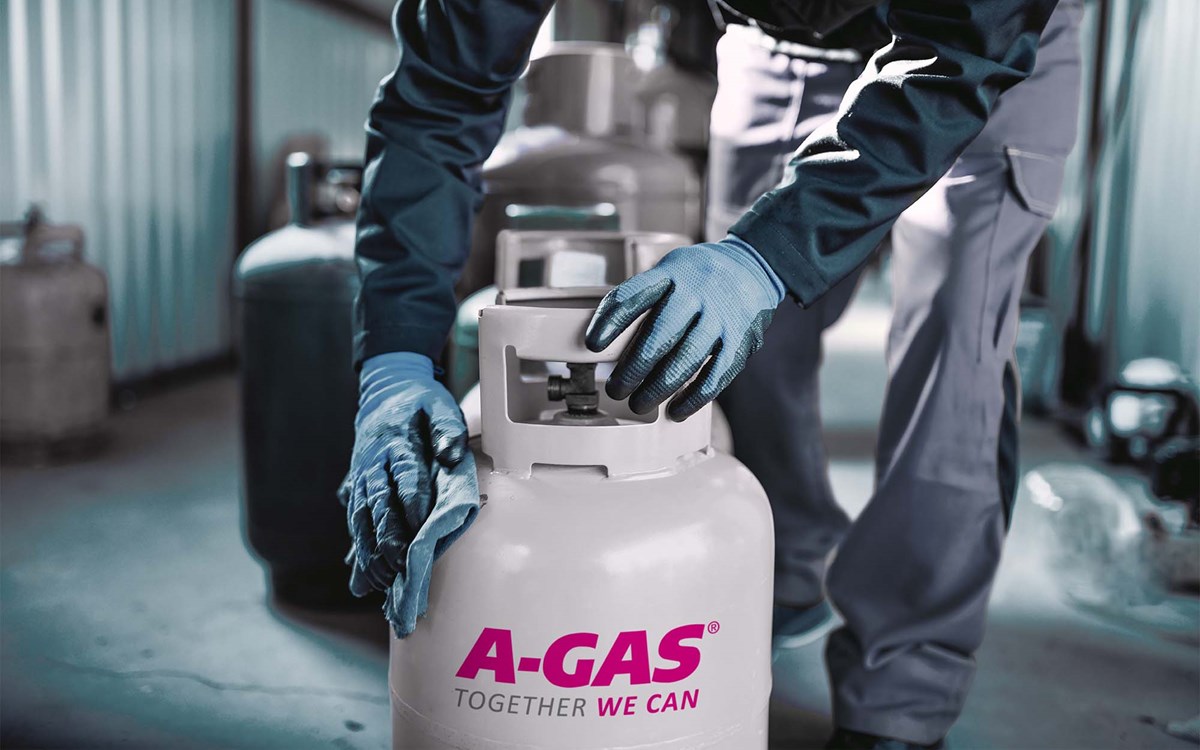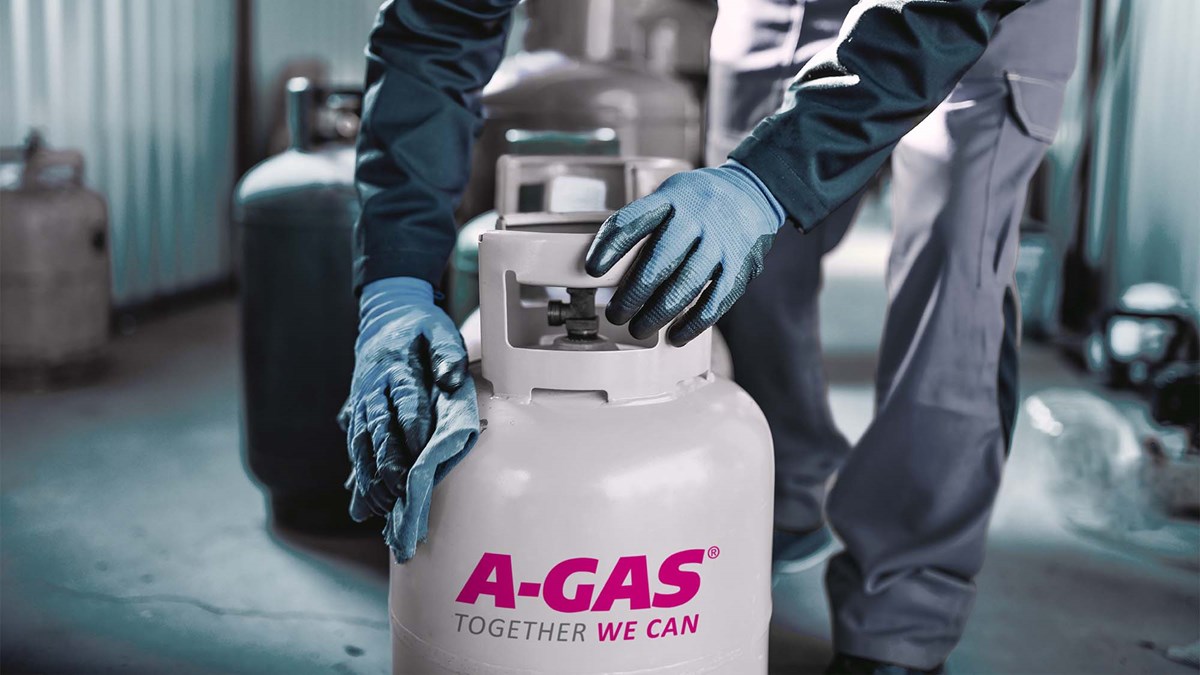Reclaiming the Future
A‑Gas Managing Director, John Ormerod, on how the new trade deal with the EU and the COVID-19 pandemic are affecting the cooling industry.

These are unusual times for our industry, and good news may be in short supply, but I am happy to report progress is being made with reclaimed refrigerant on the road to a low carbon future.
The key role that reclaimed refrigerant will play in meeting the shortfall in virgin supplies created by the caps laid down by the F‑Gas Regulation should not be underestimated. This year’s reduction of 29 per cent (on a CO2 equivalent basis) in virgin refrigerant quota will take the industry down to 45 per cent of the 2015 baseline level.
This reduction is huge and, depending on the supply-demand balance, may well put pressure on prices. In the wake of this, I am pleased to reveal that A‑Gas is supplying a major UK car manufacturer with reclaimed R134a as a first-fill for air conditioning systems on its new vehicles.
I am also delighted to report that A‑Gas is supplying reclaimed R410A to a leading air conditioning equipment manufacturer to use in new air conditioning systems. This too is a significant move in the right direction.
In both cases, these deals highlight the growing demand from original equipment manufacturers (OEMs) for more direct ways to lower their carbon footprint. They understand that by using reclaimed refrigerant they will be saving on the use of raw materials, energy consumption and unnecessary transport normally associated with the production of virgin refrigerant.
In today’s modern society, end users and customers are beginning to demand that their goods and services are produced and delivered in less wasteful ways. This move to a circular economy has to be part of the cooling industry’s sustainable future. We are well placed to reap the benefits of this circular economy – the opposite to the use and discard business model.
Britain’s departure from the European Union has been followed by the signing of the new trade deal with the European Union. Whilst aiming to be a largely tariff free deal on most goods, there will be the inevitable friction arising from the imposition of separate refrigerant quotas for the UK and the EU, as well as our exit from the Customs Union.
It will make an immediate difference to how we interact as a business with our sister operations on the Continent. A‑Gas will no longer be able to transport refrigerant between its plants in the UK and the Continent without this imposing on quotas as the EU and the UK are now separate markets.
This is further complicated by Northern Ireland. With the new agreement signed and sealed, Northern Ireland will remain within the EU F‑Gas quota system. This means that our customers in NI will have to be supplied from the Continent to stay within the same regulatory environment and quota limits.
Quotas have an important role to play in refrigerant availability and I am confident that the amount allocated to the UK based on refrigerant usage between 2015 and 2019 will be sufficient to meet demand, provided end-users continue to lower the GWP of refrigerants used in their systems.
In the overall drive to cut the use of high GWP refrigerants we will mirror what’s happening in the EU as the F‑Gas Regulation is still law in the UK. DEFRA will keep a close eye on developments in Europe and decide how they will be best put to good use in the UK.
In the past, the F‑Gas step downs have led to price rises and shortages but as the sales of low GWP refrigerants grow and the use of reclaimed gases increases there are grounds for optimism.
As a business, we have known that change has been on the way for some time and we have been able to plan for this. A-Gas has expanded production of refrigerants on the Continent in recent years and we believe that we are well placed to take advantage of the changes in our relationship with European trading partners.
As if the UK’s departure from the EU is not challenging enough, we have the demands forced upon the industry by COVID-19. The cooling industry has responded well to the pandemic and its role in keeping essential services running should not be underestimated. Key maintenance has continued at hospitals and health facilities where refrigeration, air conditioning and ventilation have been important in keeping people alive.
It is no secret that the hospitality industry has been badly hit by the pandemic with pubs and restaurants forced to close. This in turn has left its mark on the cooling industry with routine maintenance of cooling systems almost at a standstill.
The same could be said of commercial air conditioning where, with offices empty of people, demand for servicing has halted. I fear that trade in the hospitality industry could take some time to rebuild once we start to see the back end of the pandemic. Thankfully the food processing industry has carried on largely as normal despite the increasing restrictions elsewhere in society.
Supermarkets have remained open during the pandemic and essential maintenance has continued but there has been a huge cut-back in retrofit work. In operating flat-out to handle the pressures of the pandemic, switching to lower GWP refrigerants has been less of a priority.
When this retrofit work will restart in the same volume again, I do not know. The issue is being pushed further down the road and is something which will have to be returned to if the F-Gas step downs are to continue at the same pace.
We are not alone in the UK in facing the challenges presented by the pandemic and I am pleased to report that refrigerants supplied by A-Gas have been critical in keeping infrastructure running elsewhere in Europe, South Africa, Australia, the Far East and the US. This has been highlighted in the US where A-Gas is supplying refrigerant to help store the Pfizer vaccine at low temperatures.
We are proud of the resilience and ingenuity shown by our employees in rising to the challenges presented during these difficult times. With the availability of mass testing on site and the increasing effectiveness of the vaccination programme across the UK we have reasons to look to the future with optimism.
